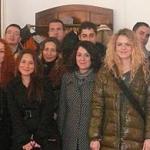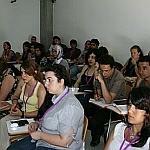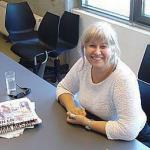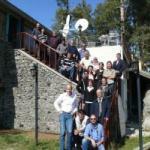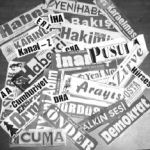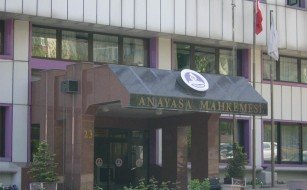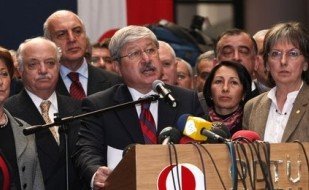The second day of the IPS Communications Foundation programme was dedicated to the question "Where is the news?"
Prof. Dr. Özden Cankaya and lecturer Füsun Özbilgen of the Galatasaray University Communications Faculty, journalist Ipek Calislar, Radikal newspaper columnist Altan Öymen, Milliyet newspaper publication consultant Nurcan Akad, and Radikal newspaper supplements editor Tugrul Eryilmaz had been invited to speak.
Cankaya emphasised the importance of objectivity and equal distance to different sides of the news item, as well as simplicity of language. Talking about ethical values, he also commented on the importance of programmes such as the IPS one for teaching graduates how to evaluate information.
Öymen: "Nobody taught us"
Öymen looked back on fifty-five years of journalistic experience and how his political life had reflected on his journalism. He focused on the importance of local journalism. Allowing frequent questions from participants, Öymen interpreted the development of interactive presentation as a "magazinisation" of journalism which would bring more pressure on journalists.
Öymen remembered the small number of university educated journalists in his early days and interpreted the increase in student numbers in communications departments as positive. He expressed his pleasure at the IPS programme, saying: "Nobody taught us how to make news; it is nice that there is someone to teach."
Akad: Do not be confidants
Akad's presentation dealt with the importance of curiosity in a journalist, and also handed out welcome advice to the newcomers about how to deal with deadlocks. For instance, she suggested that they keep a note book of institutions that were relevant to their field of interest. Thus routine news could be produced and institutions followed. She also warned that journalists should not be the confidants of their news sources.
Calislar: News is everywhere
Calislar lead a discussion with the participants about how to find news and how to deal with them: "If we wanted to, we could even create a news item about the pen in our hands, saying for instance, 'I wonder if child labour was involved in the production of this pen?' or 'Why does it cost this much?', etc."
Calislar emphasised the importance of programmes such as this one, saying that she still remembered a similar programme she took part in in the 1970s, where an exchange of ideas with experienced journalists had been eye-opening.
Özbilgen: Priority to the disadvantaged
Özbilgen lead a practical session on how to create main news items. She asked every participant to suggest two news items and said: "When you decide to write about something, you must also decide how to write about it and with whom to talk about it." She called for giving priority to disadvantaged groups in news.
For Özbilgen, the IPS project represents the "missing link" between university and employment": "With such a programme, communications graduates have the opportunity to start work without feeling unsure."
Eryilmaz: Participants are "quite well-prepared"
Finally, Eryilmaz spoke about how the media could avoid making concessions. In a question-answer session, he was asked questions such as "How should we behave in the contacts network?". Answering questions about the practices of writing, Eryilmaz evaluated the programme participants as "excited, well-meaning, and quite well-prepared for their profession". (GG/AG)





